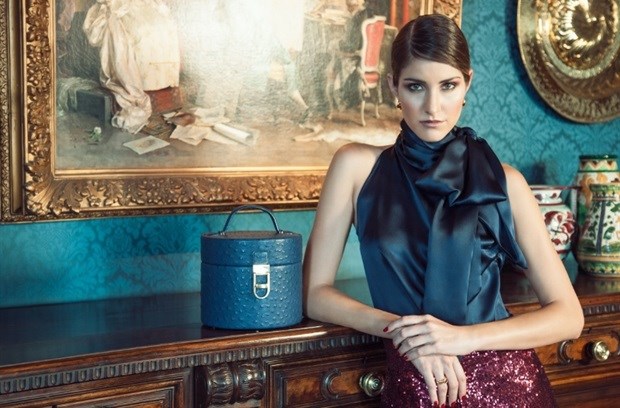Humans consume approximately 80-billion pieces of clothing annually, according to the documentary The True Cost. With a quick-throwaway culture defining the fast fashion era, investing in quality, handcrafted goods that are designed to last is one way consumers can shop more sustainably.

Kat van Duinen
“Buy less, but spend more on quality,” is a mantra that local luxury fashion designer Kat van Duinen subscribes to; and it’s one worth taking to heart.
Speaking at the ATF Trade Expo held in Cape Town last week, van Duinen explained that she opted for high-end manufacturing for her collection of luxury leather accessories because it’s important to her that products withstand the test of time.
“Buying cheaper garments where shortcuts are taken… it’s not going to last. You’ll purchase again and again and those products simply go to landfill,” she says.
“Sustainability is not about creating something for the season. We believe it’s more sustainable to produce pieces that can be passed down through generations.”
Handmade with care
Founded in 2010, the Kat van Duinen fashion house is known for its signature leather pieces and ready-to-wear collections that are painstakingly handcrafted in South Africa. “In today’s mass-produced world, handmade artisanal products are the new luxury,” explains the Polish-born designer.
Kat van Duinen advocates handmade processes whenever possible, believing that this offers unique character to each piece, as well injecting distinctive care, investment and character. “In luxury, we’re striving for perfection,” van Duinen explains.
The brand is guided by a commitment to nurture local artisans and industry, as well as to source talent and materials, whenever possible, from within the country. All products are made in South Africa and the exotic leathers used come from authorised, regulated farms and breeders.

Image source: Kat van Duinen
Aside from leather, the company prioritises using premium, natural fibres like wool and silk. The selection of natural fibres over synthetics is an important chapter in the sustainable fashion conversation.
Polyester, which is the world's most commonly used textile, is a plastic-based synthetic fibre made from coal, air, water and petroleum and takes more than 200 years to decompose. The creation, washing and disposal of synthetic textiles is part of the reason why fashion has the infamous reputation of being one of the world’s top polluting industries.
Influencing fair labour conditions
While it's not a given that luxury goods are made sustainably and under ethical conditions, in Kat van Duinen’s case the extra care taken to ensure fair compensation and healthy working conditions for every person involved in the supply chain of a product is reflected in the higher price.
Naomi Braithwaite 10 Aug 2018 “Why are our bags expensive? We demand fair wages for the workers who look after the animals used for our leathers, ethical treatment of the animals themselves, fair wages for the seamstresses working in the factory and for the sales assistants in store.
“By cutting the price, somebody somewhere is paying for it. Either the person on the farm or in the factory. As consumers, we can make a difference in how people are being compensated for their work. It’s about buying better.”
“We need to ask where our clothes come from. Transparent practices are more important than ever,” she concludes.








































